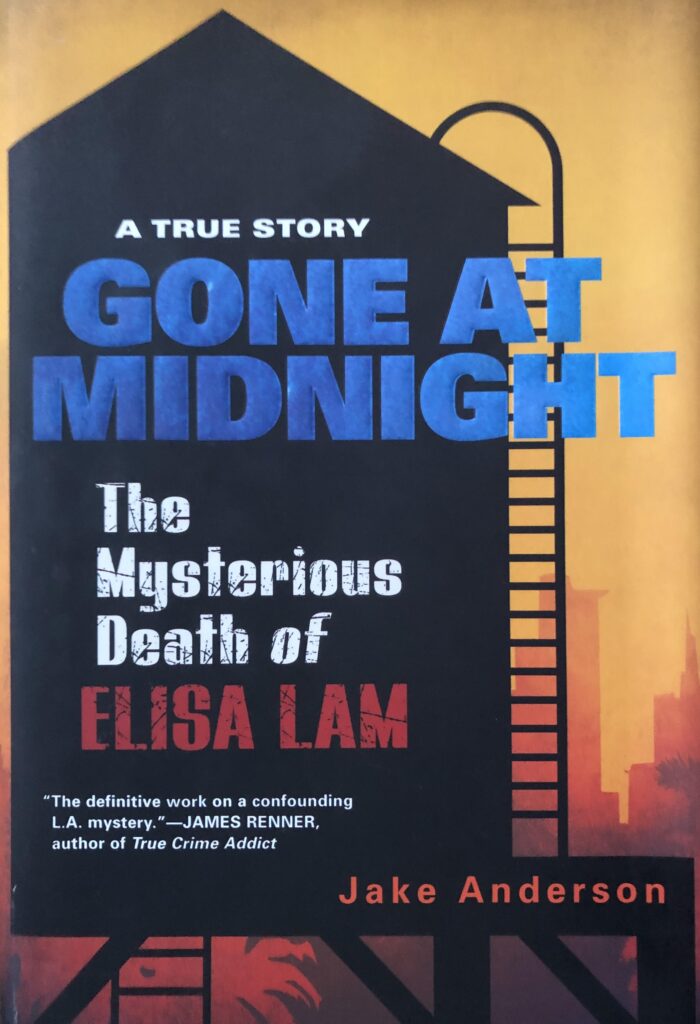
Citadel Press, New York, 2020; ISBN: 978-0-8065-4005-4. 352 pp.
Not all ‘spiritual’ experiences are good ones, just as many apparently inexplicable events don’t require ‘paranormal’ explanations. Jake Anderson’s absorbing study of the tragic death of Elisa Lam offers a timely reminder of the truth of these maxims; presenting, in the process, a meticulously-researched and interlocking investigation of one of the strangest mysteries of modern times.
As far as can be determined, twenty-one year old Vancouver student Elisa Lam went missing from the Cecil Hotel in downtown Los Angeles on 1st February 2013. Eighteen days later, whilst attempting to track down the reason for the hotel’s deteriorating water quality, a maintenance worker found her naked body floating in a water tank on the hotel roof. The area was virtually inaccessible without the setting off of alarms, yet none had sounded. Later, leaked CCTV footage revealed Lam behaving bizarrely in a lift shortly before she disappeared, as if interacting with an invisible presence. The footage went viral, gaining millions of viewers and attracting the attention of thousands of so-called ‘websleuths’ worldwide. How and why did she end up in the water tank? What might explain the bizarre behaviour captured on CCTV? Might the Cecil Hotel itself, with its strange and dark past, have had anything to do with Elisa Lam’s untimely and ultimately tragic end? Did something otherworldly lead her onto the roof and into the tank, or might the culprit have been all-too-human?
As we follow Anderson’s attempt to untangle the complex threads underlying this extremely unusual case, we find out something else, too: his own psychological ‘kinship’ with his subject. For, like Lam, the author progressively reveals himself as being on the bipolar ‘spectrum’ too, offering, as he does so, a potential explanation of her behaviour as captured on the CCTV footage together with a major clue as to some of the reasons underlying his own obsession with the case. Hence, in the process of entering into the mystery of Elisa Lam’s own tragic demise, we enter into the mystery that bipolar presents. To see this – and the author’s own autobiographical meditations upon it – as a digression is to miss the point. After all, early on he avers that this will be, in part, a work of ‘gonzo’ journalism: it’s his story, too, just as much as it is Elisa Lam’s. It’s also the story of the burgeoning websleuth movement, together with an examination of the motivations of these non-professionals as they seek to solve crimes purely through online means.
Looming over the narrative is the 600-room Cecil Hotel itself: implacable, labyrinthine, and with a history as troubled as those of many of its guests. Richard Ramirez the Night Stalker stayed here, as did another, lesser-known serial killer Jack Unterweger. In fact, so many have jumped to their deaths from the Cecil’s windows in its 98-year history that its local nickname is the ‘Suicide Hotel.’ Anderson details numerous visits that he made during his research, together with the afflictions he suffered on each occasion: troubling dreams, extreme discombobulation and, once, a sudden urge to go to the window and jump as so many others had done before him. Might there be some ‘presence’ responsible for all of this? Something profoundly affecting his state of mind? Something that had done the same – and worse – to Elisa Lam?
In the end, the author eschews all such supernatural notions, detailing his reasons in the third part of the book for supposing a human culprit in the case of Elisa Lam’s death and a cover-up of such involving multiple agencies. I wasn’t convinced by the wealth of largely circumstantial evidence that Anderson laid out in support of this thesis – the lack of signs of foul play revealed by the autopsy seemed to me decisive – but I was still gripped by this well-written and extremely interesting book. Not all ghosts belong to another ‘realm.’ Indeed, as Anderson’s excellent – if somewhat disturbing – study shows, many of the things that haunt us belong firmly to this world. Regardless of such a conclusion, I don’t recommend reading this one at night.
This review first appeared in Fellowship Review, No. 256, Winter 2022, pp. 24-5